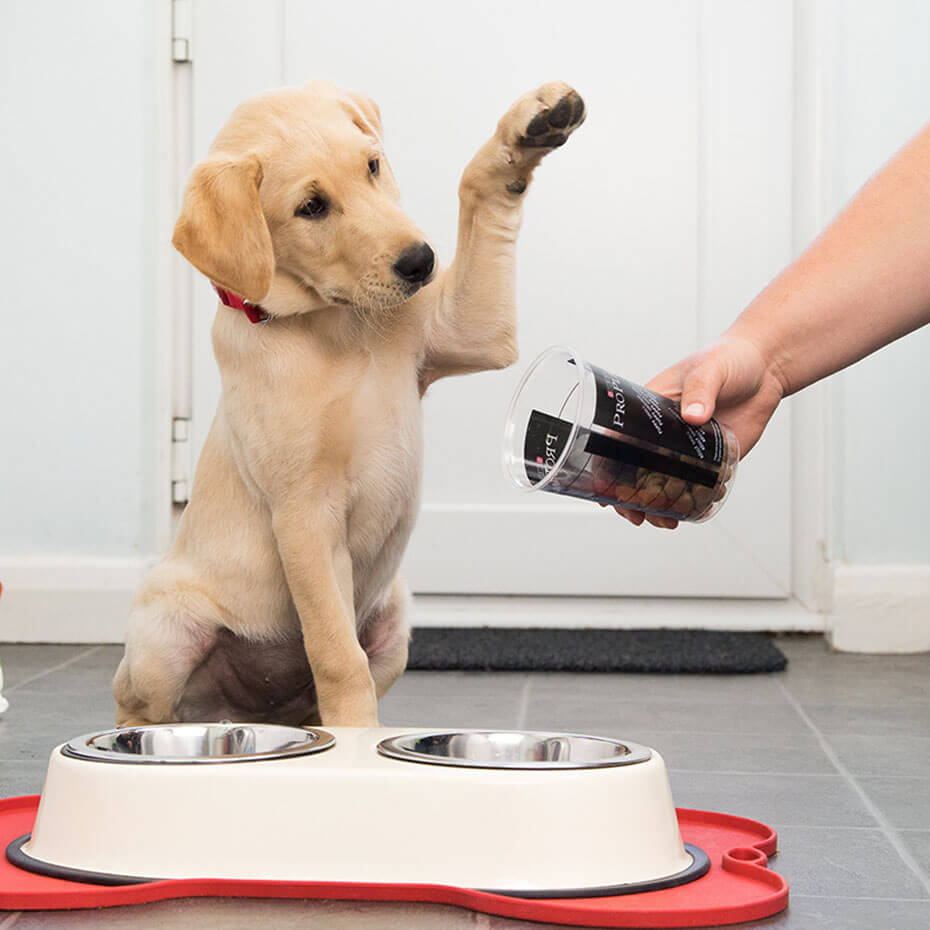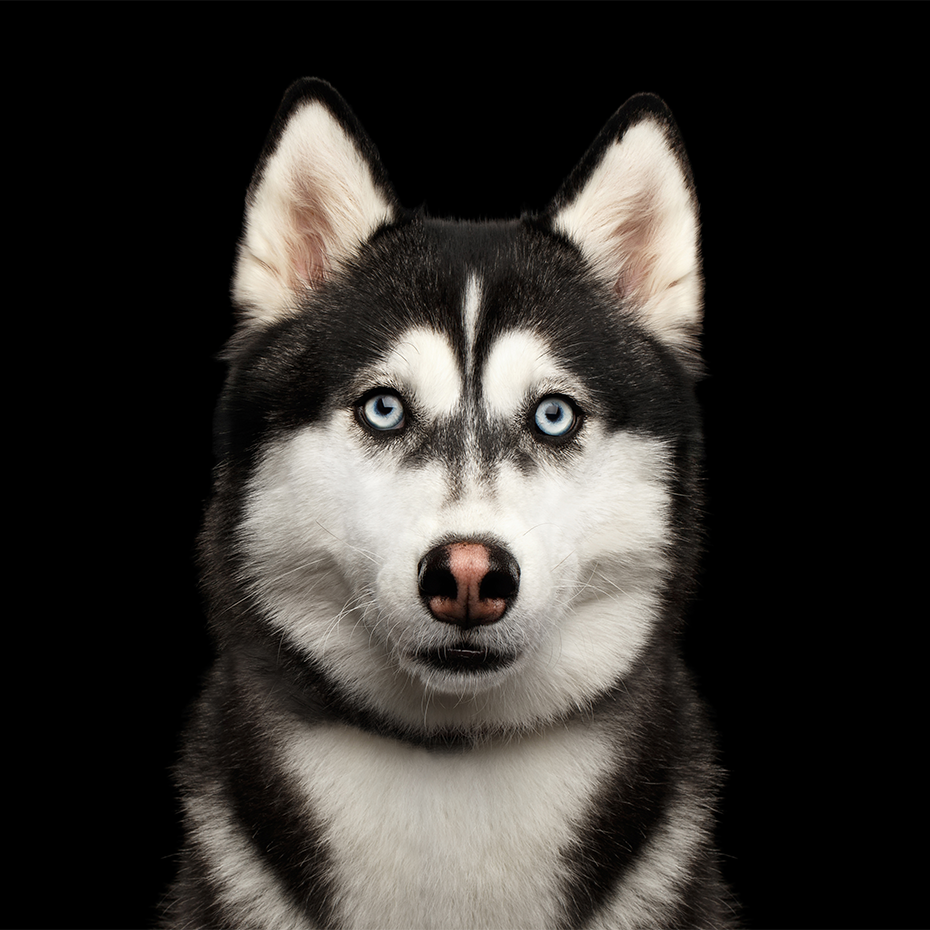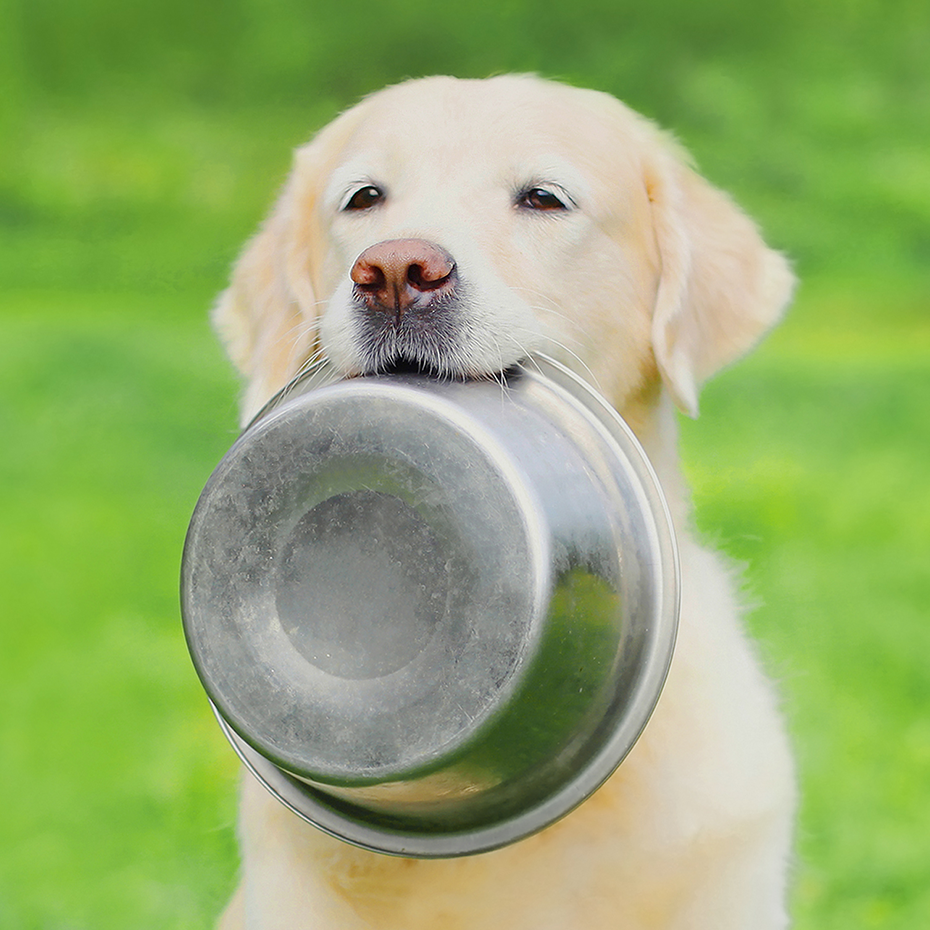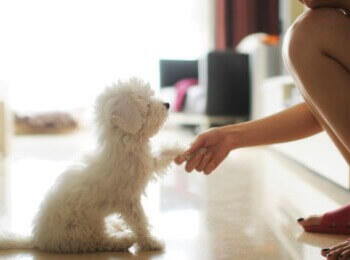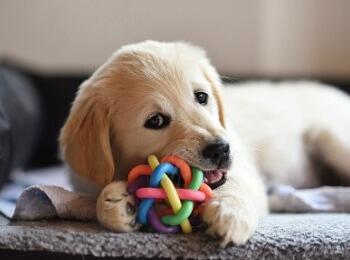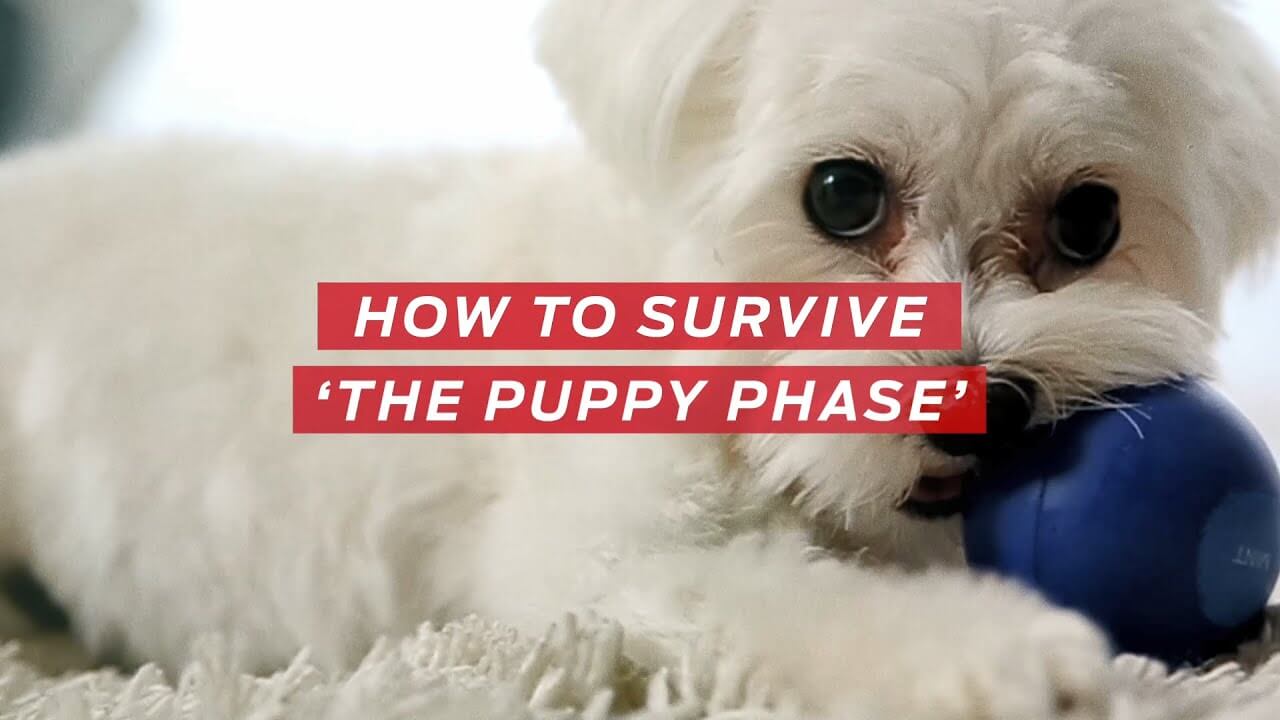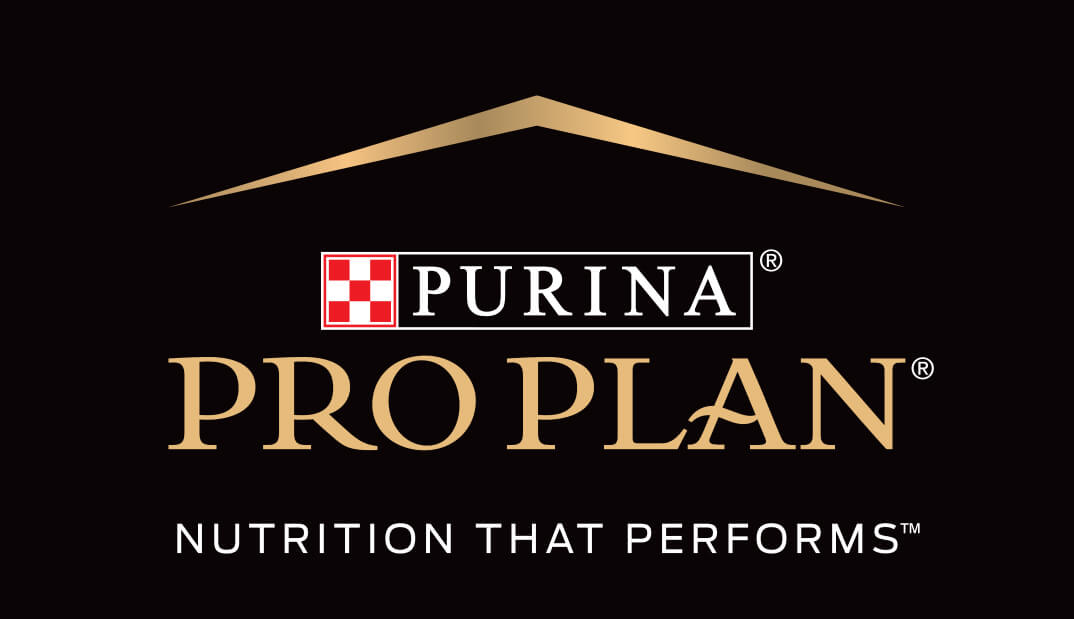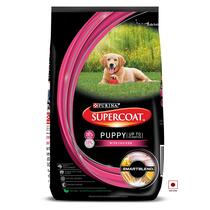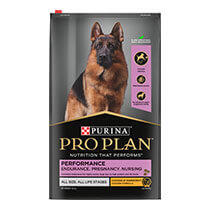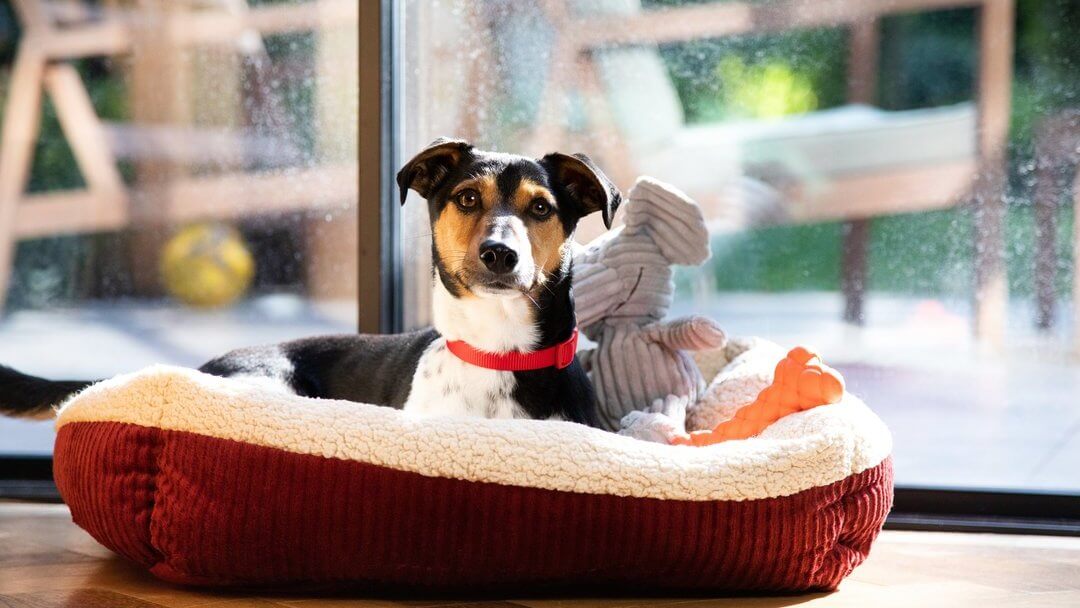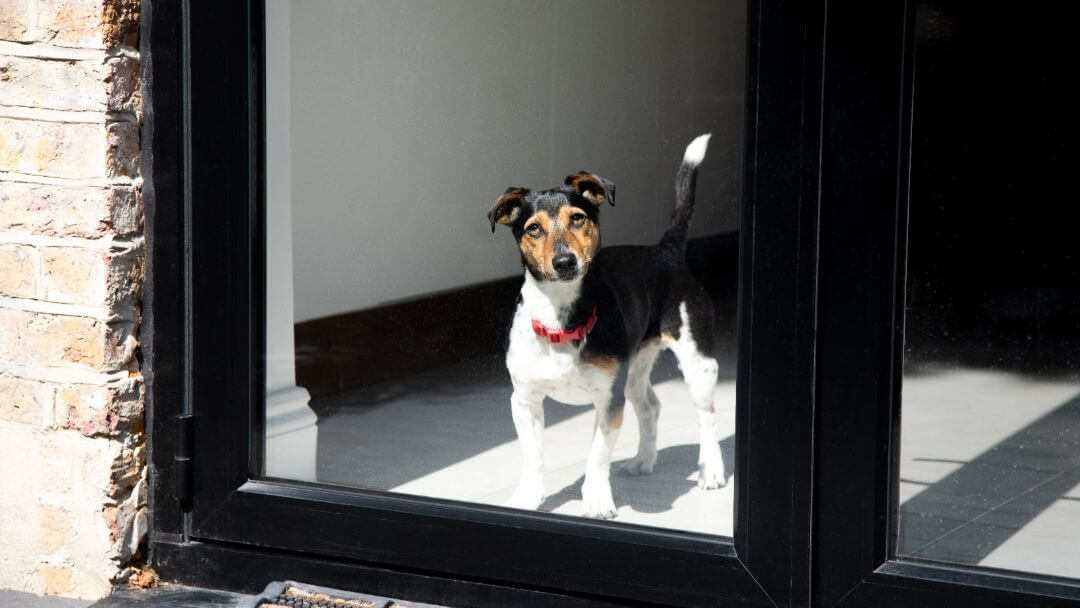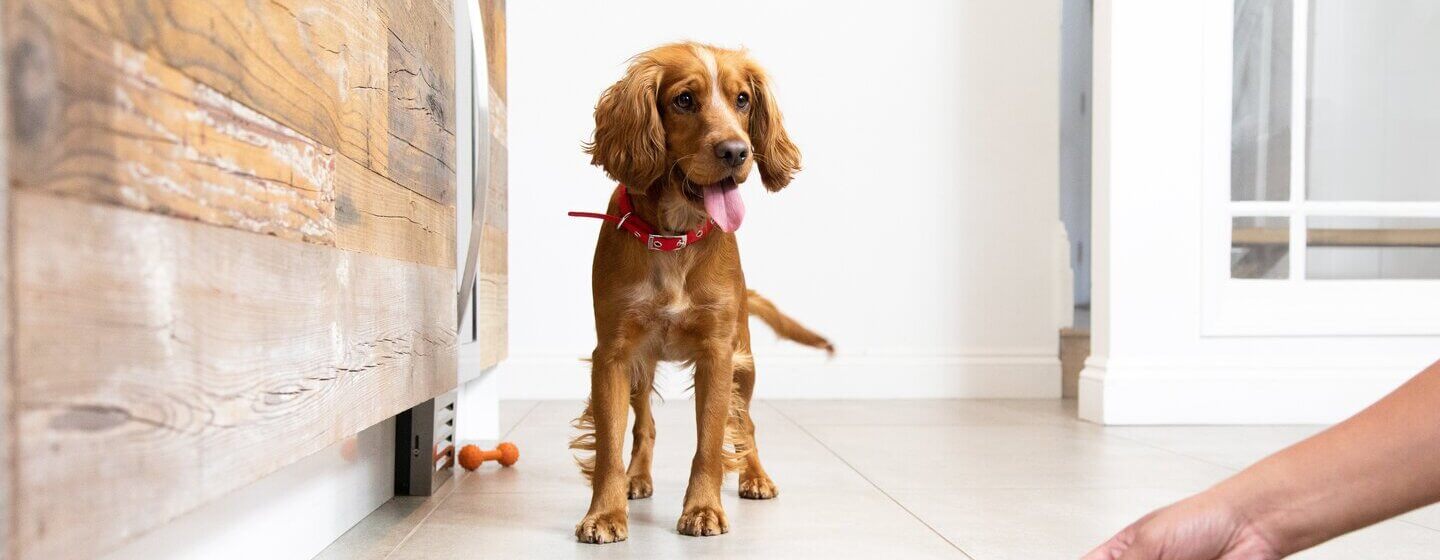
New puppies are exciting, but there’s lots you need to do to prepare! Get ready for the excitement (and hard work) of puppy ownership with our guide.
Preparing for your new puppy is such an exciting time. Pretty soon you’re going to have a small ball of fur (and joy) running around the house and you’re thinking already about all the fun times ahead. But are you also prepared for the hard work and the time-consuming, sleep-depriving part of welcoming a puppy into the family? Very few puppy owners realise just how much their life is about to change. This might all sound a bit scary – but don’t panic! There are also plenty of amazing moments only a dog owner can experience.
Here are some of the things no one tells you before preparing for a new puppy, plus a few things to look forward to.
Puppy sleep can turn out to be quite an adventure. First of all, be aware that like human babies, puppies will not sleep through the night, and for a while, neither will you. They have small bladders and are not yet toilet trained which means they will need to go out to the toilet - a lot. And you will need to go with them.
There is actually some good news (although you won’t be thinking that at 4am while you are standing outside in your dressing gown). This gives you more chances to reward them for going to the toilet in the right place and the more chances you have to do that, the faster toilet training will be.
You can prevent plenty of headaches by preparing for your puppy beforehand. Choose a place close beside you for your dog to sleep. This will help the puppy settle, bond to you and give you a chance to know when they wake up. As long as you are prepared and don’t expect anything different, you will find that managing nights with your new puppy is as easy as everyone says it is.
Dog walking is important for keeping your puppy happy, healthy and well socialised. It’s also something you have to do every single day. Preparing for a new puppy means you have to be mentally ready for all those early mornings, going for walks whatever the weather. But wait until your tail-wagging puppy showers you with kisses and you’ll soon forget all about it. At least until the next morning.
Sometimes it is easy to forget that your puppy is still in the process of growing up. Just like a human baby, puppies can get into all kinds of trouble when your back is turned. And when it comes to chewing and eating things, puppies tend to go well beyond the normal dog food menu. Unless you completely puppy proof your home, expect cables, book covers, plus your favourite furniture to take the brunt of your puppy’s bad behaviour. Make things easy for your puppy by picking items up off the floor, by not leaving things lying around within puppy reach and by watching your puppy all the time.
When it comes to puppy-proofing your garden, everything from fences to the type of plants within easy reach have to be taken into consideration. Make sure you fence off your favourite plants and remove the ones that pose a risk of intoxication or irritation for the new puppy. These are some of the least dog-friendly plants to be aware of: Lily, Azalea, Daffodil, Tomato, Foxglove, Yew and Hydrangea.
A puppy is just like a little baby. They have the whole world to discover, and the best part of it is that you’ll be there to experience it all by their side. Parks, shops, car rides, kids – it’s all brand new and extremely exciting for the young pup. You’ll get to introduce them to other dogs and humans. Puppy socialisation classes are great fun and it’s often the place where the puppies and owners make friends for life.
There are so many fun games your pup can’t wait to try with you. Make sure your new puppy checklist includes balls, frisbees or tugs and you’ll be set for plenty of fun activities all year round. Puppy games and sports are an excellent opportunity to build the bond between you both while giving your puppy plenty of exercise. Plus, you will also be adding a few extra steps to the daily count without even realising.
Puppy training
Puppy training classes are another fun perk of being a dog owner. Just imagine watching your puppy going from being completely clueless about what you’re saying to a pup able to recognise basic exercises and commands like “sit”, “down”, “stay”, “come” and even fun tricks like “give a paw” or “roll over”.
Having doggie friends is important for any puppy and so find a good puppy training class run by appropriately accredited professionals. Not only will a good class give your puppy socialisation opportunities but they will also give you access to a professional who can help answer your training questions as your puppy grows up. Far better than relying on dubious results from google!
Having a support network for the fun stuff too can add a new dimension to both of your lives. Having friends you can meet for dog walks and canine outings will give you and your dog a chance to be around different people, socialise and talk all things dogs.
Another thing to consider when preparing for a new puppy is that now you have an extra member of the family to include in your plans before you leave the house. Every time you go for evenings out or weekends away or book holidays, your puppy still needs to know who is going to give them food, hugs, and join them on their daily walks.
If you work and the dog is to be left alone, choose who is going to look after your puppy very carefully. They are at an important developmental stage in their life and so you need someone who has the experience and knowledge to be able to enhance their confidence, teach them important life-skills in a positive manner – and know what to do if anything goes wrong or in an emergency.
First of all, check to see if your dog would be allowed to come to work when they are older. More and more employers are allowing well-behaved dogs into the workplace and this may be the best long-term solution for you and your dog.
You may also need to arrange day care or a dog walker. Dogs are a social species and do not do well on their own. A puppy needs constant attention to grow up healthy and happy – and to stay out of trouble - especially in the early weeks.
If the puppy is too young to go doggie day-care, sometimes family and friends can be the answer. Involve them in your puppy’s life from the very start – maybe even when you’re deciding your choice of breed. After all, these aunts and uncles are going to be part of your puppy’s family. These are also great people to have on standby for those emergencies that we can never predict! Having someone who can take your puppy on a moment’s notice can help you out in times of crisis.
If you don’t have family or friends that can help, you are going to have to look for a professional pet sitter. Ask your vet and other local dog owners for recommendations. Make sure whoever you choose has experience, they are fully insured and have relevant qualifications (behaviour, training, veterinary nurse etc).
There are a few things that can be taken care of before your puppy’s arrival. One of them is registering the new puppy with the local vet practice. It’s better to be on their books as soon as possible.
The vet is someone who is going to be important throughout your dog’s life. After all you will be trusting your dog’s health and wellbeing to them and may even need their help in times of emergency or crisis. So find someone you like and feel comfortable with. Ask around dog-owning friends and family, use the internet, come up with a shortlist – and then visit.
Make sure you can get to the practice easily and you know who to contact and where to go in an out-of-hours emergency. Some practices do their own emergency cover while others get someone else to do it. This isn’t something you want to be trying to work out in the middle of the night when you really need them.
Here are a few things you can sort out well before your puppy’s first vet visit:
- Vaccinations.
- Neutering.
- Puppy socialisation classes.
Parasites, fleas, ticks, mites
There are all sorts of nasty little creatures that can cause serious health problems for your puppy. Worms, fleas, ticks and mites are unfortunately part of a puppy’s life and it’s up to you to keep an eye out for them. The ugly part is that you’ll have to familiarise yourself with some pretty gross details, but the great news is that your vet will have a solution to all these problems.
Preparing for a new puppy also means getting ready for all the possible financial implications of owning a dog. From vaccinations and neutering costs to grooming, day-care and food – there are significant expenses to keep in mind. For a complete guide on the costs associated with a new puppy, check our in-depth article.
New puppy checklist
Put together the puppy checklist and go shopping. This part of preparing for a puppy is so much fun that it will take lots of willpower to stop you buying the whole shop! Although it can be tempting to buy lots of new things for your new dog, you should make sure you buy the essentials first.
- Two bowls - one for food and one for water. These can be ceramic or stainless steel, as long as they can be properly cleaned.
- A nylon or leather lead and collar. To help to train your dog to walk on the lead, and not to pull, you might want to get a gentle leader head collar. These make training easier and stop bigger pups from pulling you off your feet!
- Grooming equipment.
- Some safe, fun, stimulating toys.
- A bed. There’s a huge choice of beds available so find one that’s right for your dog’s size and temperament – some are more destructible than others! Whichever type you choose, put it somewhere warm and quiet where there are no draughts.
- An indoor metal mesh kennel or crate. Puppies in particular often like the security of a crate to make into their own secure den. If you drape a blanket over it and put their bed inside, it becomes their safe place where they can hide and rest when they need some peace and quiet. Crates also help to speed up the process of house training as pups won’t want to soil their special place.
- Food. Check what type of food your puppy has been given by the breeder or rescue centre and continue with that same diet for at least a week. You can swap their food, gradually over a period of time later if you like, or if there are health reasons for doing so.
You might be a little bit stressed by all the puppy preparation checklists and all the various supplies you need to take care of before the pup arrives home.
Dogs might be hard work, especially in the early weeks – but anything worthwhile is. Dogs enrich our lives and give us so much pleasure and unconditional love from the moment we bring them home. Puppyhood is actually one of the most magical times you can spend with your dog. You are forging a bond that will last for life and it really is as simple and as much fun as everyone suggests.
Watch to see how new puppy parents in Purina survived their puppy's settling-in phase.
Knowing what to expect and being well prepared for your puppy will set you both up to succeed and make your first few weeks together a joyful voyage of discovery as you get to know and trust each other.
Read more useful tips about how to get puppy sleeping arrangements right from the start and make sure you start puppy training early on and you’ll be set for a great start to your lives together. Have fun!
